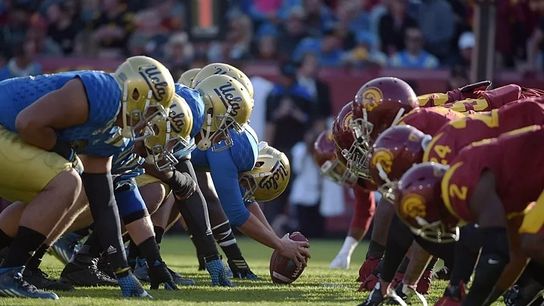The NCAA's amateurism model is under attack from both houses of Congress, forcing the organization to spring to action. But lawmakers in the state of California are done waiting around.
On Wednesday, the California state Senate voted, by a 31-4 margin, to pass the "Fair Pay to Play Act," which would give athletes at private and public California college the right to profit from their name, image and likeness.
"The California Senate has spoken loud and clear: Student athletes should enjoy the same right as all other students - to earn income from their talent," SB 206 sponsor Nancy Skinner, a Democratic Representative from Berkeley said in a tweet. "SB 206 gives our college athletes the same financial opportunity afforded to Olympic athletes.
"NCAA rules disproportionately harm students from low-income families. And they're particularly unfair to female athletes, because for many young women, college is the only time they could earn income, since women have fewer professional sports opportunities than men."
Assuming the bill passes the California state Assembly and is ratified by Governor Gavin Newsom, California college athletes would have the right to sign an agent and market their name, image and likeness beginning in 2023. It would also bar the NCAA from prohibiting California athletes from accepting NLI compensation, and also bar California schools from enforcing NCAA bylaws.
All of this leaves a giant question of enforceability. There's nothing in the United State penal code, for example, barring a football player from lining up in the line of scrimmage, but football officials are still going to mark off five yards all the same. Point being: something may be legal in the eyes of the law but against the rules of an organization a person or entity voluntarily participates in, such as the NCAA.
So, it's possible that well-meaning politicians could actually be doing a disservice to the people they're attempting to help.
“We have a chess game going on,” state Senator John Moorlach said, a Republican from Santa Clara, told the Los Angeles Times. “What does this do for the students we are trying to assist?”
Of note: the California State University system, the University of California, Stanford and USC are all opposed to the bill.
California's state government could be preparing for a massive anti-trust showdown with the NCAA and its own colleges and universities or, given that the law, if passed, wouldn't even take effect for another four years, this could all become one giant moot point.
